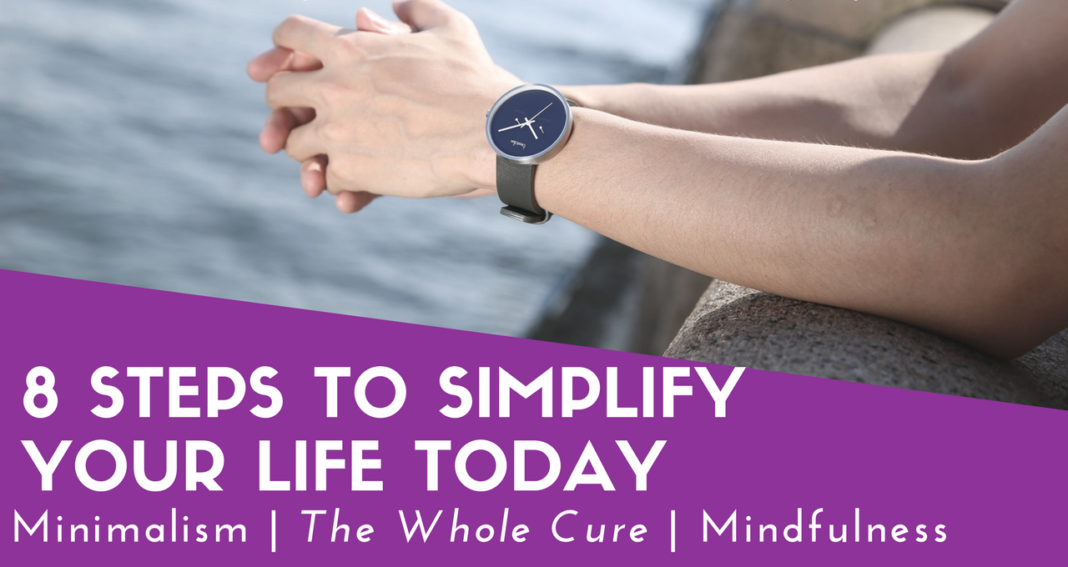In our fast-paced, consumer-driven world, the pursuit of happiness often seems elusive. We find ourselves trapped in a never-ending cycle of accumulating possessions, chasing promotions, and keeping up with the latest trends. In the midst of this chaos, many are discovering the beauty of a minimalist lifestyle – a path to simplifying life and finding genuine happiness.
What is Minimalism?
Minimalism is not merely about decluttering your physical space; it’s a mindset, a way of life that encourages intentional living. At its core, it’s about valuing experiences over possessions and embracing a less-is-more philosophy. Minimalists aim to strip away the excess, focusing on what truly matters to them, whether it’s relationships, personal growth, or simply finding joy in the present moment.
Simplifying Your Physical Space
One of the most visible aspects of minimalism is decluttering your physical space. Start by going through your possessions and ask yourself, “Does this item add value to my life?” If the answer is no, consider letting it go. The process can be liberating; you’ll discover that you can live comfortably with fewer things.
A minimalist living space is not just aesthetically pleasing; it also reduces the mental clutter that comes with a cluttered environment. Fewer possessions mean less time spent organizing and cleaning, allowing you to redirect your energy towards more fulfilling pursuits.
Embracing Minimalist Finances
A minimalist approach extends to your finances as well. Instead of constantly chasing material wealth, focus on your financial well-being by budgeting, saving, and investing wisely. A minimalist financial plan can lead to greater financial security and less stress about money.
When you’re not burdened by debt and excessive spending, you have the freedom to explore your passions, travel, or even take a career break to pursue your dreams.
Mindful Consumption
Minimalism also encourages mindful consumption. Before making a purchase, pause and reflect on whether you genuinely need the item or if it’s just a fleeting desire. This practice not only saves you money but also reduces the environmental impact of unnecessary consumption.
Opt for quality over quantity. Invest in items that will last longer and serve you better. This approach leads to a more sustainable and eco-friendly lifestyle, aligning with the minimalist values of simplicity and purposefulness.
Deepening Relationships
In the pursuit of material success, we often neglect our most important asset – our relationships. Minimalism encourages us to prioritize and nurture our connections with friends and family. By simplifying our lives, we free up time and mental space to be present with our loved ones.
Quality time spent with the people who matter most can bring immeasurable happiness. Minimalists often find that strong relationships and a sense of community contribute significantly to their overall well-being.
Cultivating Mindfulness and Gratitude
Minimalism fosters mindfulness and gratitude. When we’re not constantly chasing after the next possession, we can focus on the present moment and appreciate what we have. Practicing gratitude daily can shift your perspective and help you find happiness in the simple joys of life – a warm cup of tea, a beautiful sunset, or a heartfelt conversation.
Reducing Stress and Overwhelm
Our modern lives are filled with stressors and distractions. Minimalism offers a way to reduce the mental clutter and overwhelm. By simplifying your commitments, setting boundaries, and letting go of unnecessary obligations, you can create space for inner peace and tranquility.
Conclusion
Living a minimalist lifestyle isn’t about depriving yourself or sacrificing comfort; it’s about prioritizing what truly matters. By simplifying your physical space, finances, and commitments, you can free yourself from the constant pursuit of more and find happiness in the present moment.

